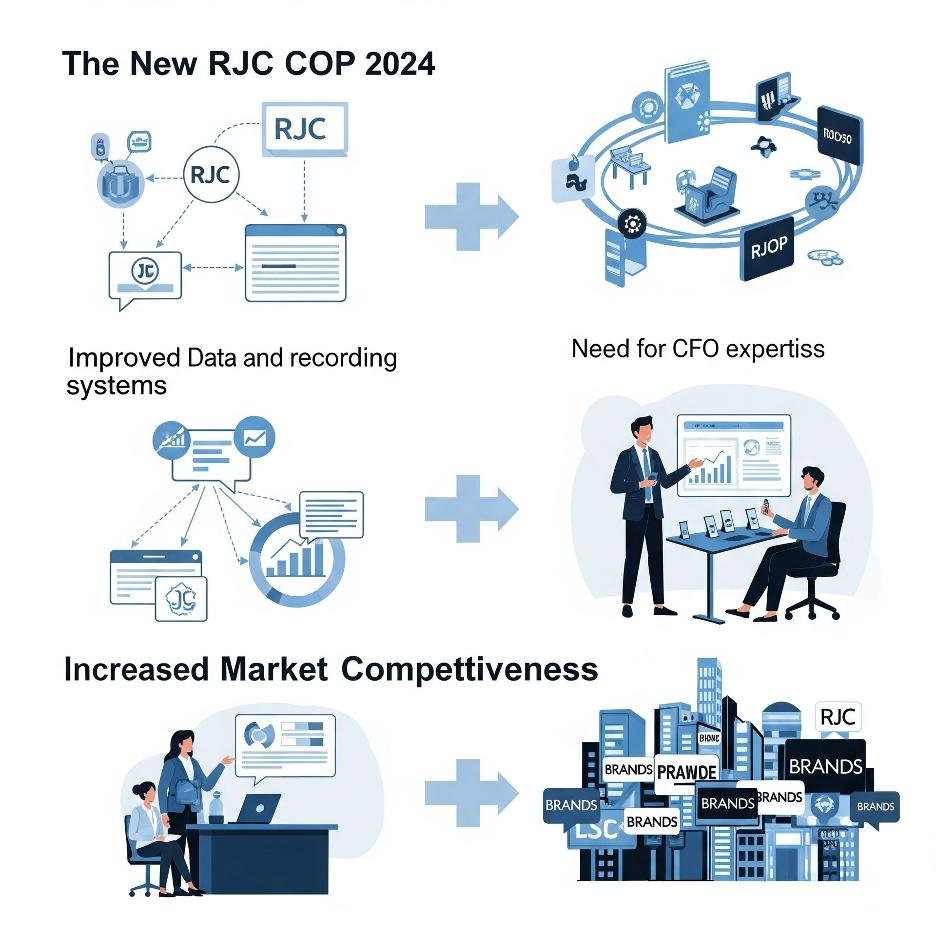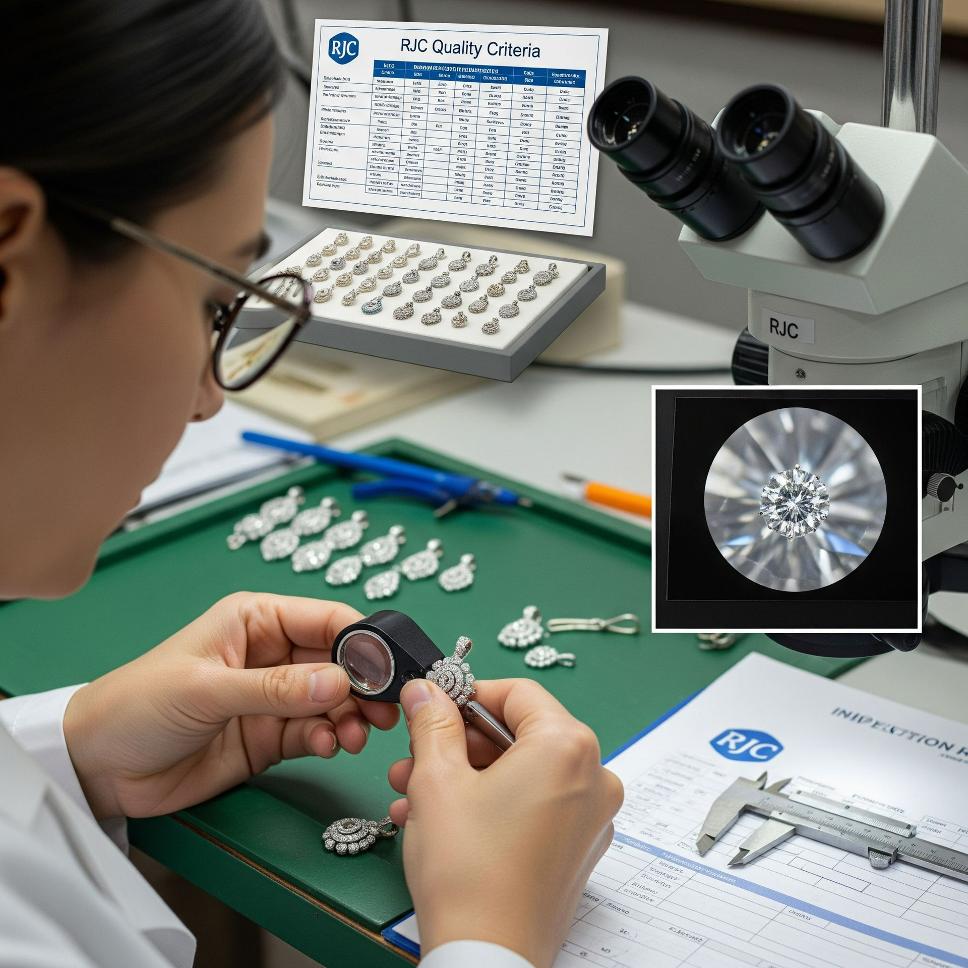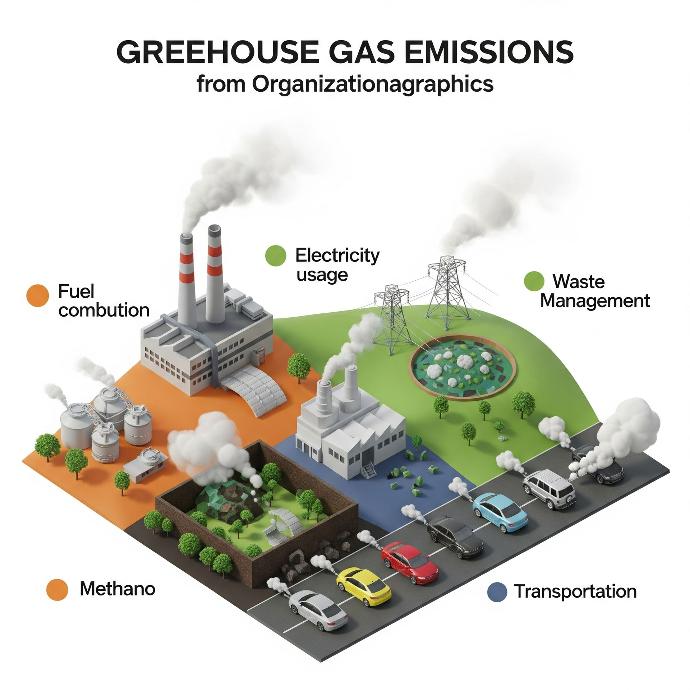RJC COP 2024 New Version - CFO
Changes to the new version of the Responsible Jewellery Council (RJC) Code of Practices (COP) 2024 regarding the preparation and verification of the Carbon Footprint Organisation (CFO) of RJC members
In 2024, the Code of Practices (COP) of the Responsible Jewellery Council (RJC) has been updated in COP 27, specifically regarding Greenhouse Gas and Energy, particularly clauses 27.5 and 27.6, which have added important and more stringent practical requirements regarding the management and reporting of Greenhouse Gas (GHG) emissions and energy use by members. This directly impacts the implementation of the Carbon Footprint Organisation (CFO) as follows:
Key New Requirements:
1. COP 27.5 – All members must:
- Prepare data on Scope 1 (direct emissions) and Scope 2 (indirect emissions from energy use) Greenhouse Gas emissions.
- Show the energy sources used.
- Record and disclose the calculation methods and assumptions used.
2. COP 27.6 – Members with "significant" emissions or energy use must:
- Develop a 3-year plan to reduce emissions and energy use with "meaningful and achievable" annual reduction targDets.
- Have their emission and energy use data verified regularly each year by external experts.
- Publicly report this data and report progress in emission reduction.
📌 Connection with Carbon Footprint Organisation (CFO)
The changes in COP 2024 make the CFO preparation process, which was previously "optional," now "necessary" for RJC members, especially those with high energy use and greenhouse gas emissions, because:
- GHG emission calculations and reports must be prepared annually, covering Scope 1 and Scope 2, which are the basis of CFO.
- Data verification (Verification) by external experts is required, which aligns with the CFO principle that accuracy must be checked.
- Information must be publicly disclosed (Public Disclosure), which helps increase transparency and build confidence among stakeholders.
🎯 Impact on RJC Members
- Members must prepare data and recording systems effectively, such as collecting data on electricity, oil, fuel, etc. usage.
- Members must provide training or acquire CFO experts to prepare and verify reports as required by the new RJC regulations.
- Increase competitiveness in the market, especially in markets that emphasize carbon reduction, such as the European and US markets


